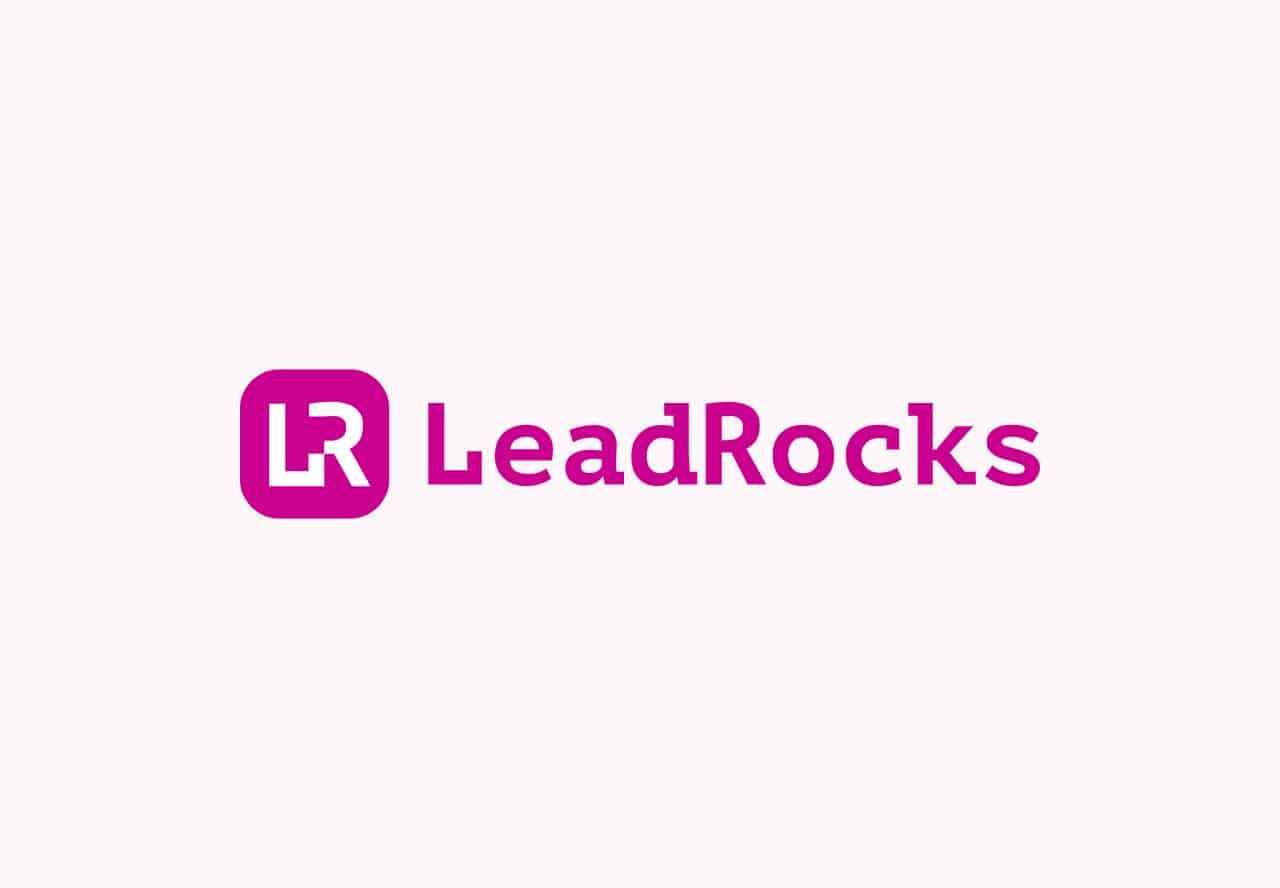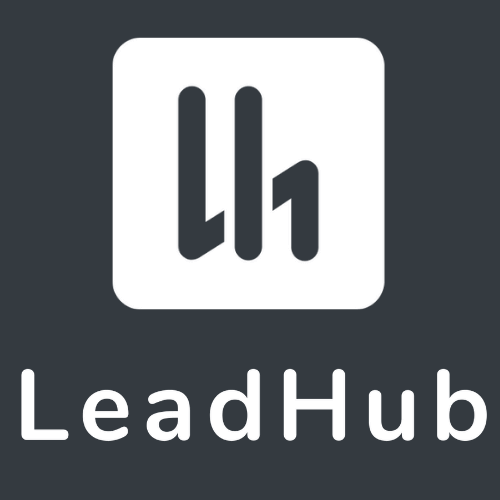Description

LeadRocks

LeadHub
Comprehensive Overview: LeadRocks vs LeadHub
LeadRocks, LeadHub, and LeadsRx are tools designed to assist businesses with lead generation, management, and conversion optimization, though they approach these objectives differently. Here’s a comprehensive overview including their primary functions, target markets, market share comparison, and key differentiating factors:
LeadRocks
a) Primary Functions and Target Markets
-
Primary Functions: LeadRocks is primarily a lead generation tool. It focuses on providing businesses with the contact information of potential clients, enabling direct outreach. Its main functionalities include a vast database of contacts, email verification, and integration with CRM systems.
-
Target Markets: LeadRocks targets small to medium-sized businesses (SMBs), sales teams, and marketers looking to expand their contact lists and increase sales opportunities through cold outreach.
b) Market Share and User Base
- LeadRocks is a newer entrant in the lead generation market. While specific market share and user base statistics are not publicly available, it has been gaining traction due to its affordability and simplicity, which appeal to smaller businesses and startups.
c) Key Differentiating Factors
- Data Quality and Volume: LeadRocks emphasizes the accuracy and volume of its contact database, which is crucial for effective lead generation.
- Affordability: Offers competitive pricing, making it accessible for smaller companies with limited budgets.
LeadHub
a) Primary Functions and Target Markets
-
Primary Functions: LeadHub is a platform focused on comprehensive lead management. It offers features like lead tracking, scoring, and pipeline management to help businesses nurture leads and convert them more effectively.
-
Target Markets: It primarily targets medium to large enterprises that require advanced lead management capabilities and are looking to streamline their sales processes through a centralized platform.
b) Market Share and User Base
- LeadHub, being a more established platform in the lead management domain, has a moderate share of the market. It competes with other CRM-like solutions and is known for its robust capabilities in managing and converting leads, appealing to larger organizations with complex sales processes.
c) Key Differentiating Factors
- Comprehensive Management: Focuses on the entire lead lifecycle with deep analytics and reporting capabilities.
- Scalability: Designed to handle large volumes of leads, making it suitable for big businesses with extensive sales operations.
LeadsRx
a) Primary Functions and Target Markets
-
Primary Functions: LeadsRx is a multi-touch attribution and marketing analytics platform. It helps businesses understand the customer journey by tracking interactions across multiple channels, providing insights for optimizing marketing campaigns.
-
Target Markets: Aimed at marketers and advertising professionals, particularly in mid-sized to large enterprises, who seek to improve ROI on marketing campaigns by understanding customer interactions better.
b) Market Share and User Base
- LeadsRx has a distinctive position in the market as an attribution-focused tool. It's popular among companies investing heavily in marketing who need detailed insights into campaign performance, offering a specialized solution rather than a direct competitor in generic lead generation or management.
c) Key Differentiating Factors
- Attribution Focus: Unlike the other two, LeadsRx specializes in attribution, providing deep insights into the efficiency and effectiveness of multi-channel marketing campaigns.
- Integration Capabilities: Offers extensive integrations with ad platforms and CRMs to track and analyze diverse marketing activities.
Comparative Overview
- Approach and Functionality: While LeadRocks is about obtaining leads, LeadHub is focused on managing those leads once obtained, and LeadsRx is about optimizing the marketing process that turns leads into customers through attribution insights.
- Target Markets: LeadRocks and LeadHub cater to businesses directly involved in sales processes, with LeadRocks being more suitable for small businesses and startups. LeadHub and LeadsRx serve more complex organizational needs, with LeadHub focusing on sales management and LeadsRx on marketing optimization.
- Market Positioning: In terms of overall market footprint, LeadsRx might be seen as more niche due to its specialized functionality, whereas LeadHub covers a broader CRM-like space, and LeadRocks attracts users through its accessible pricing and straightforward approach.
Each of these tools serves different strategic purposes, making them complementary rather than directly competitive, depending on a business’s specific lead-related needs.
Contact Info

Year founded :
Not Available
Not Available
Not Available
Not Available
Not Available

Year founded :
2011
Not Available
Not Available
United States
http://www.linkedin.com/company/lead-hub
Feature Similarity Breakdown: LeadRocks, LeadHub
To provide a feature similarity breakdown for LeadRocks, LeadHub, and LeadsRx, it's important to note that these platforms might be updated, so you should verify this information with the latest resources. Here's a general comparison based on common features of lead and marketing analysis tools:
a) Core Features in Common
-
Lead Management: All three platforms offer tools for managing leads, allowing users to track, nurture, and qualify sales leads.
-
Data Analytics: Each platform includes analytics capabilities that provide insights into leads' behaviors and patterns.
-
Integration Options: They typically integrate with CRM systems, email marketing tools, and other sales/marketing platforms to streamline workflows.
-
Reporting Tools: Standardized and customizable reporting features are common in these tools to track performance and ROI.
-
Automation: LeadRocks, LeadHub, and LeadsRx offer automation features to help streamline lead nurturing and marketing processes.
b) User Interface Comparison
-
LeadRocks: Known for a clean and intuitive interface designed to be user-friendly. It focuses on seamless navigation across its features.
-
LeadHub: Generally has a straightforward interface, emphasizing ease of use and immediate access to dashboards. Appeals to users with varying levels of technical expertise.
-
LeadsRx: Often praised for its clear and comprehensive dashboards. While powerful, its interface can be more complex due to its extensive attribution features, requiring a bit more of a learning curve.
c) Unique Features
-
LeadRocks:
- Advanced Search Functionality: Boasts a sophisticated search tool that helps users find specific leads or sets of leads based on detailed criteria.
- Contact Enrichment: Provides detailed contact enrichment options, enhancing the depth of lead profiling.
-
LeadHub:
- Pipeline Visualization: Offers unique visualization tools for sales pipelines, providing detailed stage-based insights into lead conversion.
- Social Media Integration: Distinctive integration capabilities with various social media platforms, enhancing lead generation from social channels.
-
LeadsRx:
- Cross-Channel Attribution: Specializes in marketing attribution across multiple channels, providing in-depth analysis of the customer journey and pinpointing what drives conversions.
- Radio and Podcast Attribution: A standout feature is its ability to measure the impact of radio and podcast ads on lead generation, setting it apart in omni-channel attribution.
In conclusion, while LeadRocks, LeadHub, and LeadsRx share core features, they each offer unique capabilities tailored to specific needs—whether it be advanced search, pipeline visualization, or comprehensive attribution analysis. The user interfaces vary, with LeadRocks and LeadHub focusing on usability, while LeadsRx offers advanced analytic tools within a more feature-rich environment.
Features

Lead Generation
Data Management
Performance Tracking
Outreach Tools

Integration
Lead Management
Communication Tools
Analytics and Reporting
Best Fit Use Cases: LeadRocks, LeadHub
When considering tools like LeadRocks, LeadHub, and LeadsRx, it's important to understand their distinct features and optimal use cases to make informed decisions. Here's a breakdown of where each tool might fit best:
a) LeadRocks
Best Fit Use Cases:
- Types of Businesses or Projects:
- B2B Companies: LeadRocks is particularly effective for businesses that need to generate leads by accessing vast databases to identify potential B2B clients.
- Sales Teams: Organizations with dedicated sales teams looking to strategize outreach and enhance lead acquisition.
- Startups: Especially those in early stages of client acquisition, benefiting from affordable access to lead data.
Catering to Industry Verticals or Company Sizes:
- LeadRocks appeals more to small to mid-sized businesses (SMBs) and startups that need a cost-effective way to build their target lists without extensive resources.
- It's suitable across various verticals where B2B lead generation is crucial, such as SaaS, consulting firms, and tech companies.
b) LeadHub
Preferred Scenarios:
- Project Management and Collaboration: Businesses that require robust project management capabilities for sales and marketing campaigns.
- Customer Relationship Management (CRM): Scenarios where integrating CRM processes with lead generation is a focus.
- Marketing Agencies: Agencies managing multiple client campaigns, needing consolidated lead tracking and communication features.
Catering to Industry Verticals or Company Sizes:
- LeadHub serves medium to large enterprises that need sophisticated tools for team collaboration and CRM integration.
- This tool is often preferred in marketing and advertising sectors, where project coordination and client interaction are critical.
c) LeadsRx
Consideration Over Other Options:
- Attribution Tools: Businesses that need comprehensive marketing attribution solutions to track and analyze the ROI of advertising efforts.
- Data-driven Marketing: Companies focused on understanding customer journeys and optimizing marketing spend.
- E-commerce Platforms: Large e-commerce businesses that rely heavily on multi-channel attribution to refine their sales strategies.
Catering to Industry Verticals or Company Sizes:
- LeadsRx is tailored towards mid-sized to large businesses that require detailed insights into marketing performance across various channels.
- Industries that benefit include e-commerce, financial services, and any sector where digital marketing plays a pivotal role in customer acquisition.
In summary, while LeadRocks is ideal for SMBs focused on B2B sales, LeadHub provides extensive CRM and collaboration functionalities suitable for larger marketing-driven organizations. LeadsRx stands out as a sophisticated attribution tool for businesses that prioritize marketing analytics and performance optimization.
Pricing

Pricing Not Available

Pricing Not Available
Metrics History
Metrics History
Comparing undefined across companies
Conclusion & Final Verdict: LeadRocks vs LeadHub
When considering LeadRocks, LeadHub, and LeadsRx, it's important to evaluate each based on specific needs such as features, pricing, ease of use, and scalability. Below is a comparison and final verdict based on these factors:
Conclusion and Final Verdict
a) Which product offers the best overall value?
LeadRocks offers excellent value for businesses focused on lead generation at a competitive price point, particularly for small to medium-sized enterprises (SMEs) looking for a budget-friendly option. LeadHub provides a comprehensive suite of CRM features that cater to both lead generation and customer management, making it an excellent choice for those who need an all-in-one solution. LeadsRx excels in attribution and analytics, helping businesses track the ROI of their marketing efforts in a detailed manner, which is particularly beneficial for data-driven marketing teams in larger companies. Overall, the best value depends on the specific business focus: LeadRocks for affordability and straightforward lead generation, LeadHub for integrated CRM needs, and LeadsRx for advanced analytics and tracking.
b) Pros and Cons of Choosing Each Product
-
LeadRocks:
- Pros:
- Cost-effective, especially for SMEs.
- User-friendly interface with easy setup.
- Focused on lead generation with robust sourcing tools.
- Cons:
- Limited CRM functionalities.
- May not scale well with rapidly growing businesses requiring advanced features.
- Pros:
-
LeadHub:
- Pros:
- Offers a comprehensive CRM solution.
- Seamlessly integrates lead generation and customer management.
- Highly customizable to fit various business needs.
- Cons:
- Higher cost compared to LeadRocks.
- Can be more complex to set up and use, requiring training.
- Pros:
-
LeadsRx:
- Pros:
- Strong focus on marketing attribution and analytics.
- Valuable insights for optimizing marketing expenses and ROI.
- Suitable for data-driven decision making.
- Cons:
- Primarily caters to larger businesses with dedicated marketing teams.
- May be overkill for businesses not focused on detailed analytics.
- Pros:
c) Recommendations for Users Deciding Between LeadRocks vs LeadHub vs LeadsRx
-
For Small to Medium Enterprises: LeadRocks is likely the best choice if the primary goal is straightforward lead generation on a budget. If additional CRM capabilities are required, consider LeadHub, especially if you foresee needing more customer relationship management capabilities as your operation scales.
-
For Businesses Needing Comprehensive CRM Solutions: LeadHub is ideal if you're looking for an all-in-one platform that not only generates leads but also manages customer relationships and integrates with other tools. It's well-suited for medium to larger businesses seeking a balance of lead generation and CRM.
-
For Marketing Teams Focused on Data Analytics: LeadsRx is the optimal choice for those requiring in-depth analysis of marketing performance. If understanding detailed customer journeys and optimizing marketing spend is crucial for your business, this platform will provide the necessary tools and insights.
Ultimately, the decision should align with the business size, budget, and specific operational needs. Evaluate the essential features of each platform against your business goals to make the most informed choice.
Add to compare
Add similar companies



